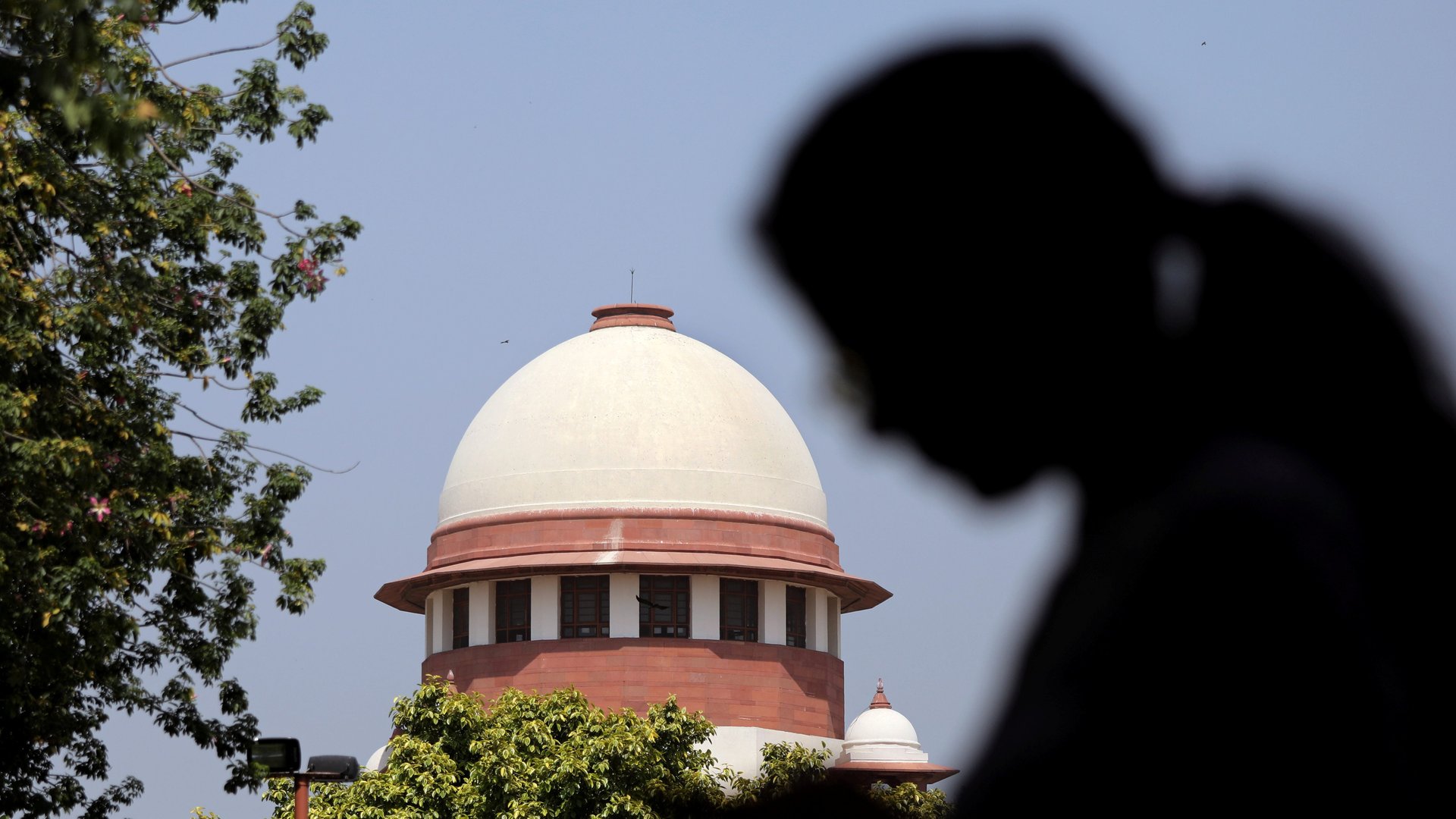India’s supreme court has suspended the use of a British colonial sedition law
India’s supreme court made a bold move today in favour of free speech.


India’s supreme court made a bold move today in favour of free speech.
It directed the central and state governments to stop filing cases under the country’s sedition law. In effect, all pending cases in various courts have been held in abeyance.
The central government had argued in court that where there is a “cognisable offence” and a law exists to imprison the accused, then such a case could not be prevented from being filed. The government’s contention was that a police officer of a specified seniority could determine the necessity of filing such cases.
But the court eventually decided to place a stay on the law. Those who are booked under this law from this point on till the court’s next orders can now approach the court to have the charges overturned. According to senior advocate Kapil Sibal, there are currently 13,000 people in various Indian jails on charges of sedition.
India’s current sedition law
The stay will be in place till the Indian government can reassess provisions of the British-era law. The 152-year-old section 124A of the Indian Penal Code currently states:
“Whoever, by words, either spoken or written, or by signs, or by visible representation, or otherwise, brings or attempts to bring into hatred or contempt, or excites or attempts to excite disaffection towards, the Government established by law in [India], shall be punished with [imprisonment for life], to which fine may be added, or with imprisonment which may extend to three years, to which fine may be added, or with fine.”
The law was used by the British to imprison freedom fighters in India, including Mohandas Karamchand Gandhi.
Today, governments routinely use the law to punish dissenters, including journalists and activists. Now, with the supreme court’s latest order, those in jail for sedition charges can apply for bail.
This post has been updated.